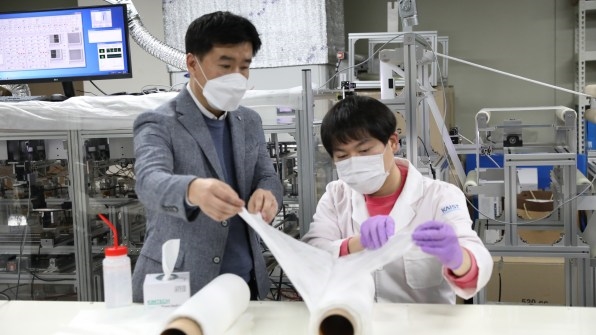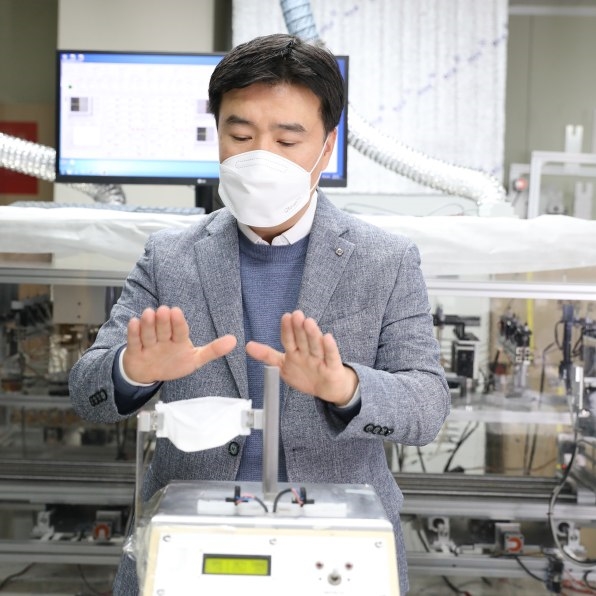As the coronavirus overwhelms hospitals around the world, medical professionals are suffering from a shortage of the personal protective equipment they need to stay safe. In response, people are trying to develop masks that can be washed and reused in contrast to the common, disposable masks that are now in scarce supply.

At the peak of South Korea’s COVID-19 outbreak, government officials enforced rations on N95 face masks, which are considered the gold standard, as they block about 95% of particles that are 0.3 microns in size or larger, which includes the coronavirus. Doctors and nurses were only allowed to use two per week, which is notable since they’re disposable and intended for one-time use. (Similar rationing is now happening in the United States.) So in an effort to find another, more sustainable, solution, researchers at the Korea Advanced Institute of Science and Technology (KAIST) designed a recyclable nano-fiber filter that can fit inside standard surgical masks, which are less scarce.
Nano-fiber filters are generally used in air filtration systems and are made through an electro-spinning process that creates an extremely thin, fibrous material, which is then inlaid in a filter. These nano-fiber webs are so taut—and have such microscopic holes in them—that larger pieces of dust and contaminants aren’t able to penetrate them. KAIST’s nano-filter, which can be woven into the interior of personal protective gear, improves upon the design of traditional masks on the market because it minimizes the amount of dirt and other pathogens that are able to pass through the surface of disposable masks. Additionally, it maintains its ability to filter out contaminants—like COVID-19—even after being washed. This means medical professionals will be able to thoroughly wash these masks before reusing them, a big improvement on having to repeatedly reuse single-use masks. (Though these masks are more sustainable over time than the N95, they filter out roughly 4% fewer particles than standard masks do, which is still enough to filter out the coronavirus pathogens.)

[Photo: courtesy KAIST]
Il-Doo Kim, a professor at KAIST who leads the project, said this mask is reusable for up to a month, even after being washed in ethanol. And even once the filter is no longer usable, it can simply be replaced if the outer mask is still functional
After undergoing 20 rounds of washing, the nano-fiber design was able to successfully filter 94% of contaminants (namely bacteria with ethanol) and retained its original shape. Bolstered with these results, Kim—who focuses on technology that filters fine dust with the help of nano-filters—has officially filed this design with Korea’s Ministry of Food and Drug Safety in order to deliver the masks to the masses.
Gear like masks and face shields are designed to safeguard doctors’ and nurses’ immunity and prevent viruses from infecting them on the job. While hospital staff—and the rest of the world—wait for suppliers to ramp up production of these vital items, Kim’s research institute is actively producing 1,500 nano-fiber filters a day, so the masks will hopefully be available to both citizens and healthcare workers on the front lines soon.
(22)